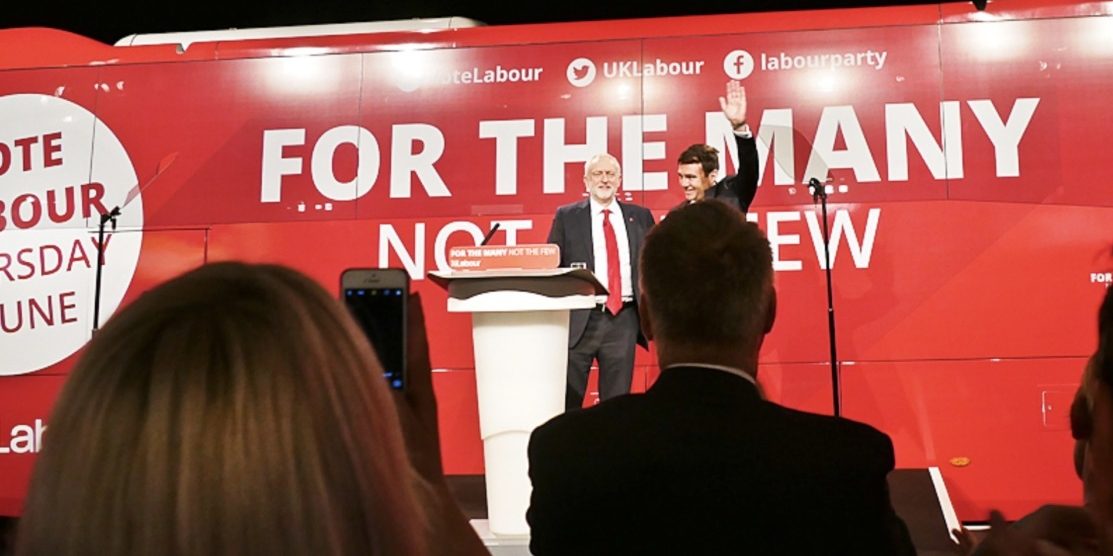Labour support among UK students drops to four year low
The Labour Party’s support among UK students has almost halved in 18 months, according to a survey conducted by research agency YouthSight.
Labour still has the support of 38% of students who said they are likely to vote, declining from 70% in February 2018. This is the lowest number of student support in the last four years.
It has been suggested that the party’s Brexit policy is causing student voters to turn towards pro-Remain parties like the Liberal Democrats and the Green Party.
The Liberal Democrats have the support of 19% of the student vote, a major increase from a 5% average vote share over most of this decade. This average has been attributed to the party breaking its election pledge on tuition fees.
The Green Party and the Conservatives are on 18% and 12% respectively. The Brexit Party received 4%, and the SNP had 3%.
Rania Ramli, national chair of Labour Students, said: “Brexit has definitely been a big cause of the fall in Labour support among students. We will be significantly impacted and many students have therefore become unwilling to support the Labour Party’s ambiguity around the issue.
Brexit has definitely been a big cause of the fall in Labour support among students. We will be significantly impacted and many students have therefore become unwilling to support the Labour Party’s ambiguity around the issue
– Rania Ramli
“It’s disappointing that it took so long for the Labour leadership to finally come out in support of a People’s Vote and Remain but it’s positive that they finally have.”
Richard Brooks, co-founder of the anti-Brexit youth group For our Fututre’s Sake (FFS), said: “The continued confusion and fence-sitting on Brexit until recently has upset an incredibly pro-People’s Vote and Remain young population. Even though Labour are now in a far better place, senior MPs in the party continue to muddy the water without consequence.
“It’s also clear that the party’s inability to properly tackle Antisemitism has hurt it with young people, and it pains me as a party member to see our inaction in this area.”
Students were also asked how they felt about the party leaders. Jeremy Corbyn received a favourability rating of 2%, declining from a high point of 41% 18 months ago.
New Liberal Democrat leader Jo Swinson received a score of -6%, and Boris Johnson had a net favourability of -55%.
Nick Hillman, director of the Higher Education Policy Institute (HEPI), stated that Corbyn’s appeal with younger voters may be “starting to be unpicked” because he was no longer the “new kid on the block”.
He said: “Labour are still polling at a level where any of the other parties would be delighted to be getting [that share of the vote] among students. So they are not exactly catastrophic numbers, but it certainly seems the sheen has come off.”
Labour are still polling at a level where any of the other parties would be delighted to be getting [that share of the vote] among students. So they are not exactly catastrophic numbers, but it certainly seems the sheen has come off
– Nick Hillman
When asked how they would vote if a second referendum were held tomorrow, 76% of the student respondents said they would vote Remain. Meanwhile, 8% supported leaving the EU with no deal, 6% backed leaving with Theresa May’s deal, and 10% said they didn’t know.
Mr Corbyn has refused to state what Labour’s position in a second referendum would be.
In response to the survey, a Labour spokesperson commented: “In 2017, we won the biggest increase in Labour’s vote share since 1945 and took away the Tories’ majority. Whenever the next general election comes, Labour will offer a real choice between a Conservative government run in the interests of the rich and the corporate elite, and a Labour government that abolishes tuition fees, invests in public services and tackles the climate emergency.
“Labour is committed to a public vote, including an option to remain, and we are leading the campaign to stop Boris Johnson’s devastating No Deal.”

Comments